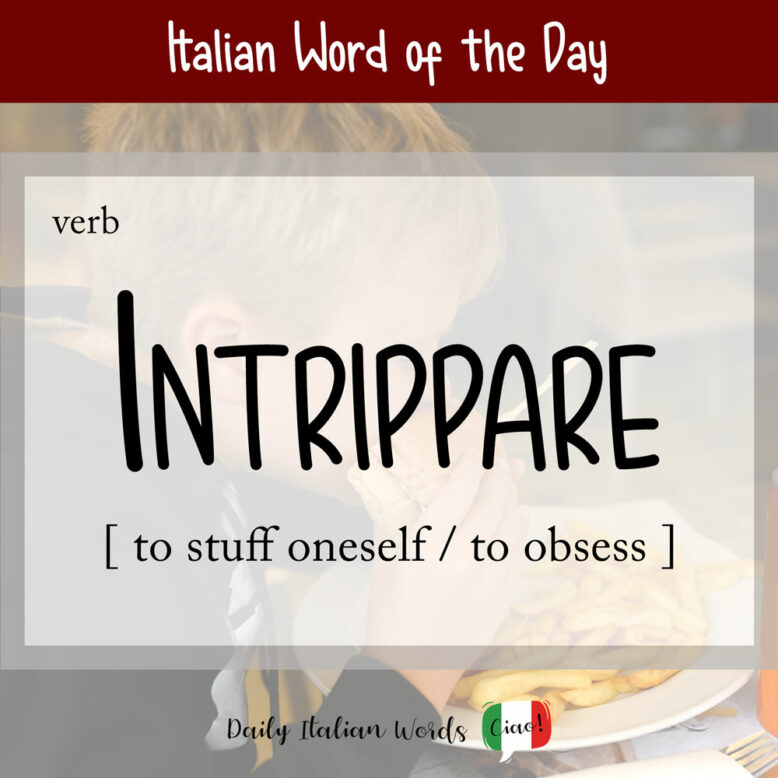Last night at the dinner table, our six month old son – who usually has the attention span of a goldfish – spent the entire duration of our meal fixated on a toy horse, analysing every hoof, hair and marking on its colourful body.
To describe this kind of behaviour, there is a great verb in Italian: intrippare.

Now if you look the verb up in authoritative dictionaries like Treccani, the only thing you’ll find is the literal definition, which is to stuff oneself (with food). Apparently the verb derives from the word trippa, a humorous way of saying tummy in Italian. (It also means tripe.)
Mi sono intrippato una torta intera!
I gobbled down an entire cake!

But intrippare has more than just a literal meaning. It is also a slang term used amongst young people that means ‘to develop a strong passion or obsession for someone or something to the point that it becomes like a drug‘. Some possible English translations include:
- to grab one’s interest
- to obsess
- to fascinate
- to absorb
Intrippare also exists as a pronominal verb (intripparsi with the pronoun si on the end). The difference is that intrippare is used when the obsession is the subject of the sentence, whereas intripparsi is used when the obsessed individual is the subject. For example:
Intrippare
Quando una serie mi intrippa, devo guardarla fino alla fine.
When I’m obsessed with a series, I have to watch it right to the end.
(Literally: When a series obsesses me, I have to watch it right to the end.)
Intripparsi
Quando (io) mi intrippo con una serie, devo guardarla fino alla fine.
When I’m obsessed with a series, I have to watch it right to the end.
(Literally: When I obsess myself with a series, I have to watch it right to the end.)
It is possible to intripparsi about a number of things including songs, games, famous people, or someone you’ve developed a crush on.
As for the aforementioned allusion to drugs, it is far from accidental. In fact, the term itself derives from the slang word trip, which is used in both English and Italian to describe the hallucinatory experience caused by taking a psychedelic drug. (Source: Sapere.it)
Si è intrippato con gli amici.
He got high with his friends.
According to the Slengo slang dictionary, it is often accompanied by adverbial phrases such as di brutto, male or malamente which all serve as emphasisers. For example:
Ho cominciato a giocare a questo videogioco ieri sera e mi sono intrippato di brutto.
I started to play with this videogame last night and I’m totally obsessed.

Learning slang is a fantastic way of improving your language skills and offers valuable insight into how languages evolve over time. However, because it can only be used in limited situations, we thought we’d share a few synonyms for intrippare that you’ll hear in more standard or formal Italian:
- appassionarsi = to become passionate
- provare un forte interesse = to have a strong interest
- essere preso da = to be taken with / to be engrossed with
Heather Broster is a graduate with honours in linguistics from the University of Western Ontario. She is an aspiring polyglot, proficient in English and Italian, as well as Japanese, Welsh, and French to varying degrees of fluency. Originally from Toronto, Heather has resided in various countries, notably Italy for a period of six years. Her primary focus lies in the fields of language acquisition, education, and bilingual instruction.


